MSPTM COMMUNITY HEALTH AWARENESS PROGRAMME 2025
DATE: 27th FEBRUARY – 1ST MARCH 2025 (THURSDAY – SATURDAY)
VENUE: KAMPUNG LUBUK LEGONG, BALING, KEDAH
Health for All in Kampung Lubuk Legong!
From 27 Feb – 1 Mar 2025, MSPTM & UniSHAMS, in collaboration with USM, organised a Health Awareness Programme in Baling to promote healthy living and provide free health services! This programme is part of MSPTM community social responsibility (CSR) project.
✅ Free health screenings
🧼 Hygiene & oral care workshops for kids
🎉 Fun games & health quizzes
👩⚕️ Expert talks on gut health, hygiene & environment
🏠 House visits to engage the community
With the help of 32 amazing volunteers, the event reached 100+ participants and made a real impact. A big shoutout to all who made it happen!
#MSPTM #UniSHAMS #USM #CommunityHealth #PublicHealth #Baling #HealthAwareness
The Malaysian Society of Parasitology and Tropical Medicine (MSPTM) and Universiti Islam Antarabangsa Sultan Abdul Halim Mu’adzam Shah (UniSHAMS) organised a Health Awareness Programme from 27 February to 1 March 2025 at Kampung Lubuk Legong, Baling. The event aimed to promote health awareness and provide essential health services to the local community. It was held in collaboration with Universiti Sains Malaysia (USM).
The objectives of the event included to raise awareness about common health issues and preventive measures, provide free health screenings and consultations and educate the community on hygiene practices and healthy living.
The activities conducted within the three days programme were categorised into three main themes. Firstly, health screenings and consultations whereby free health check-ups, including blood pressure, body mass index and blood sugar test were conducted. In addition, children participated in hygiene workshops focusing on proper handwashing techniques and oral health. Secondly, during the interactive sessions, children engaged in fun learning activities such as games and quizzes to make health education enjoyable. Lastly, many communities attended the expert talks by Dr. Lee Ii Li on gut health and nutrition. Dr. Farah Haziqah conducted a session on personal hygiene, while Dr. Intan Haslina Ishak shared insights on environmental health.
The programme was supported by 32 dedicated volunteers (25 MBBS students from UniSHAMS, 6 undergraduate and 1 postgraduate students from USM). These volunteers were instrumental in conducting house-to-house visits to distribute faecal sampling cups and inviting the community to participate in the awareness programme. Their contributions were key to ensuring the event’s success.
The programme successfully reached over 100 participants, including children, parents, and local leaders. The combination of educational activities and health services made a lasting impact on the community, showcasing the strength of partnerships between academia and local organization.
The MSPTM Health Awareness Programme at Kampung Lubuk Legong, Baling, was a resounding success. It not only raised health awareness but also provided valuable health services to the community. The event highlighted the importance of community engagement and collaboration in promoting public health.
Photo Gallery
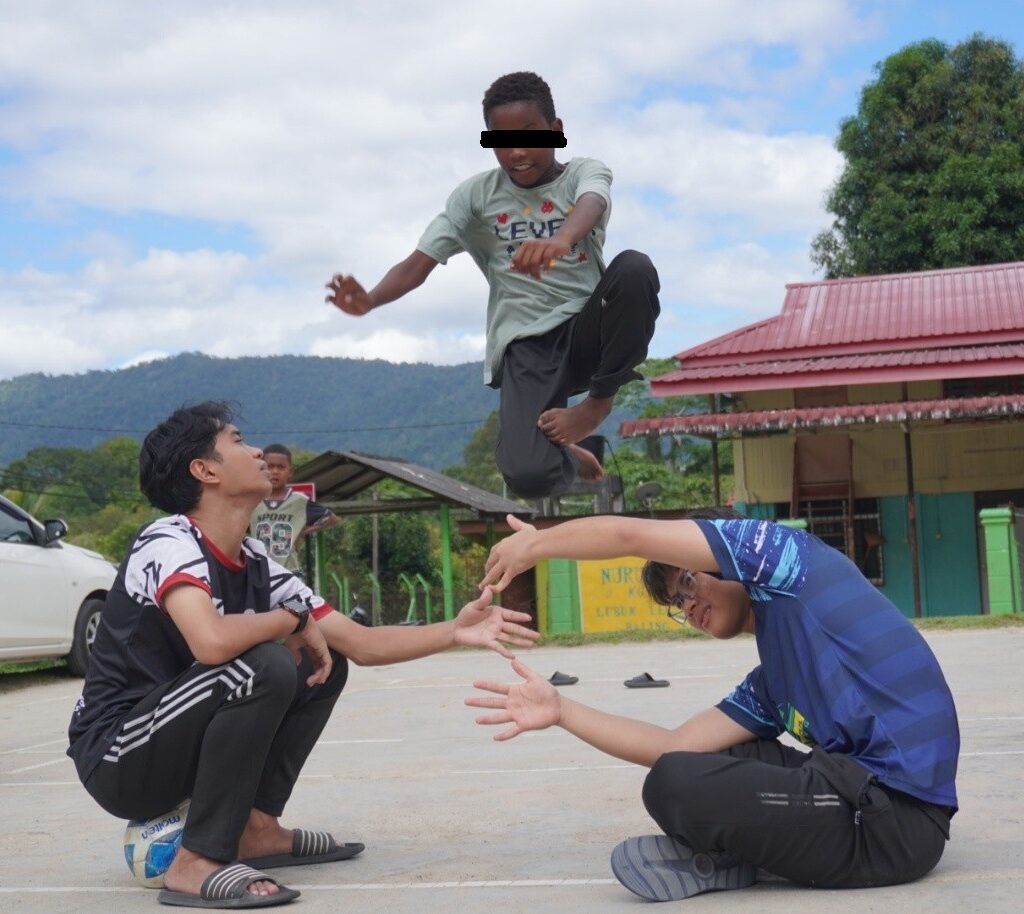 Children enjoying playing games
Children enjoying playing games
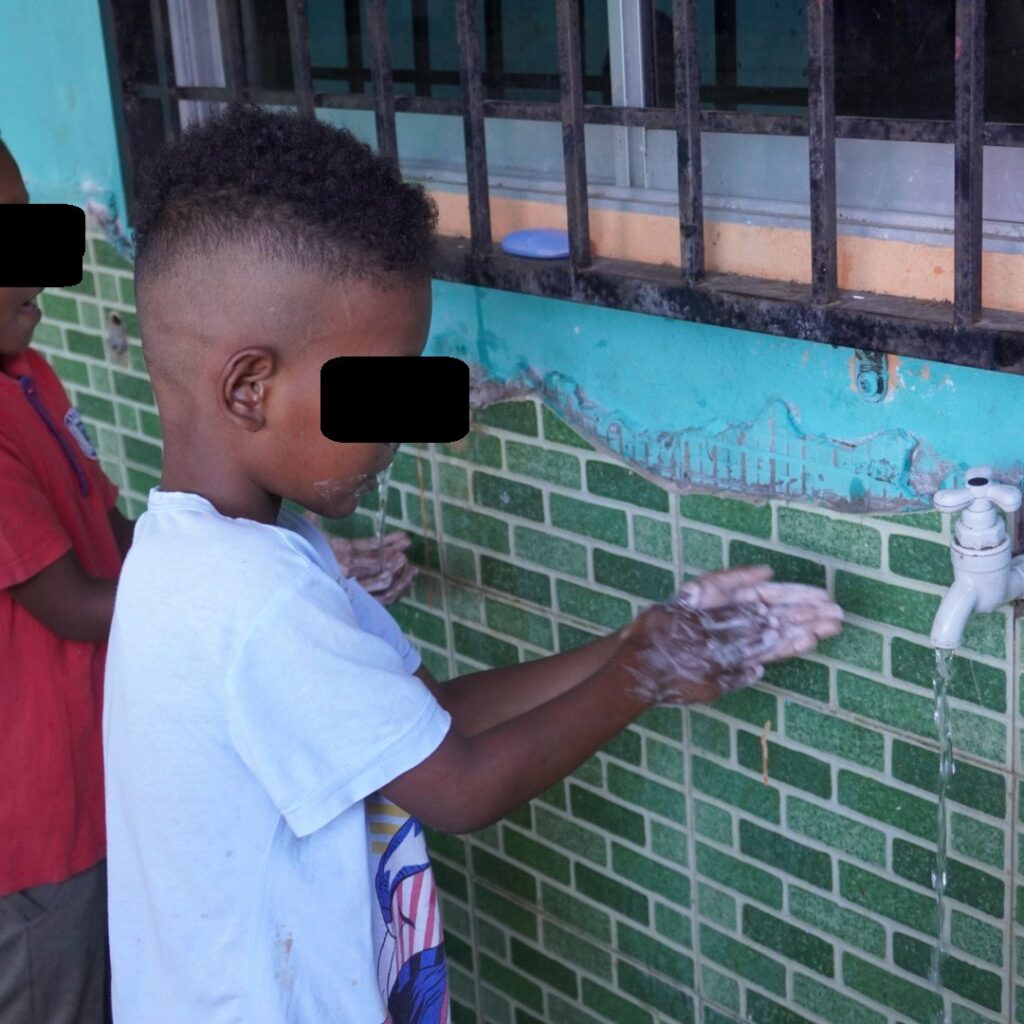 Children participated in the hand washing activity
Children participated in the hand washing activity
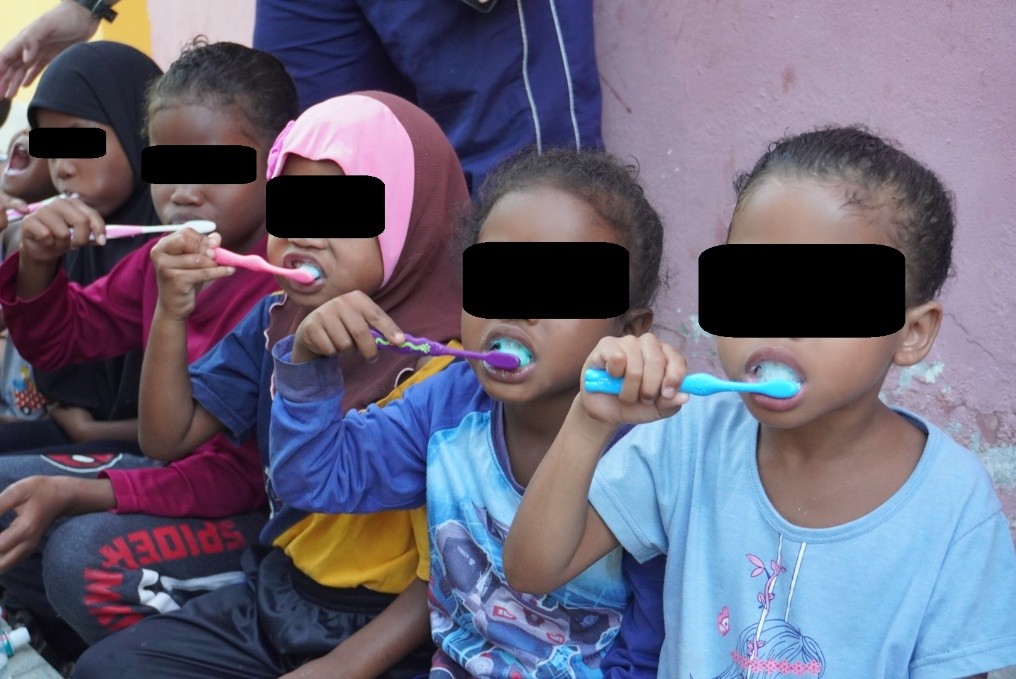 Children participated in the oral hygiene activity
Children participated in the oral hygiene activity
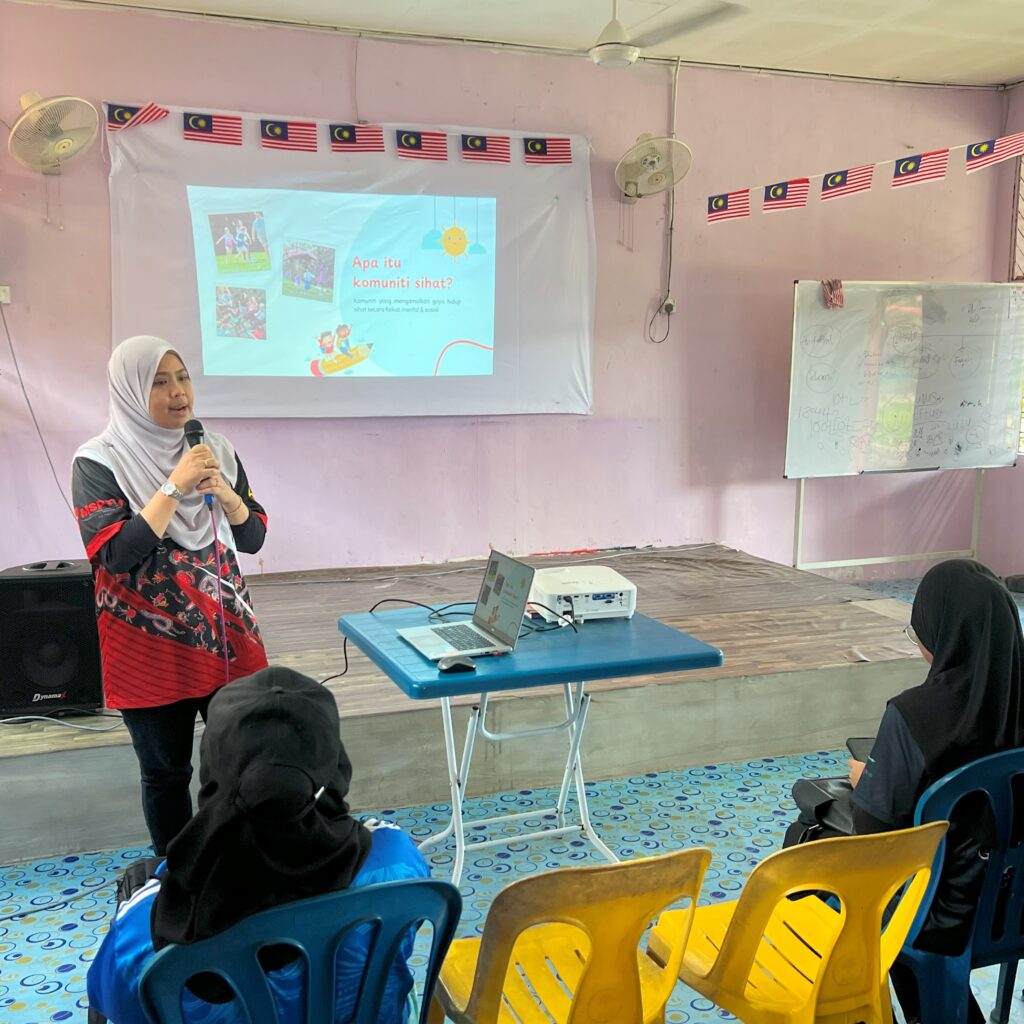 Dr Intan – Environmental health
Dr Intan – Environmental health
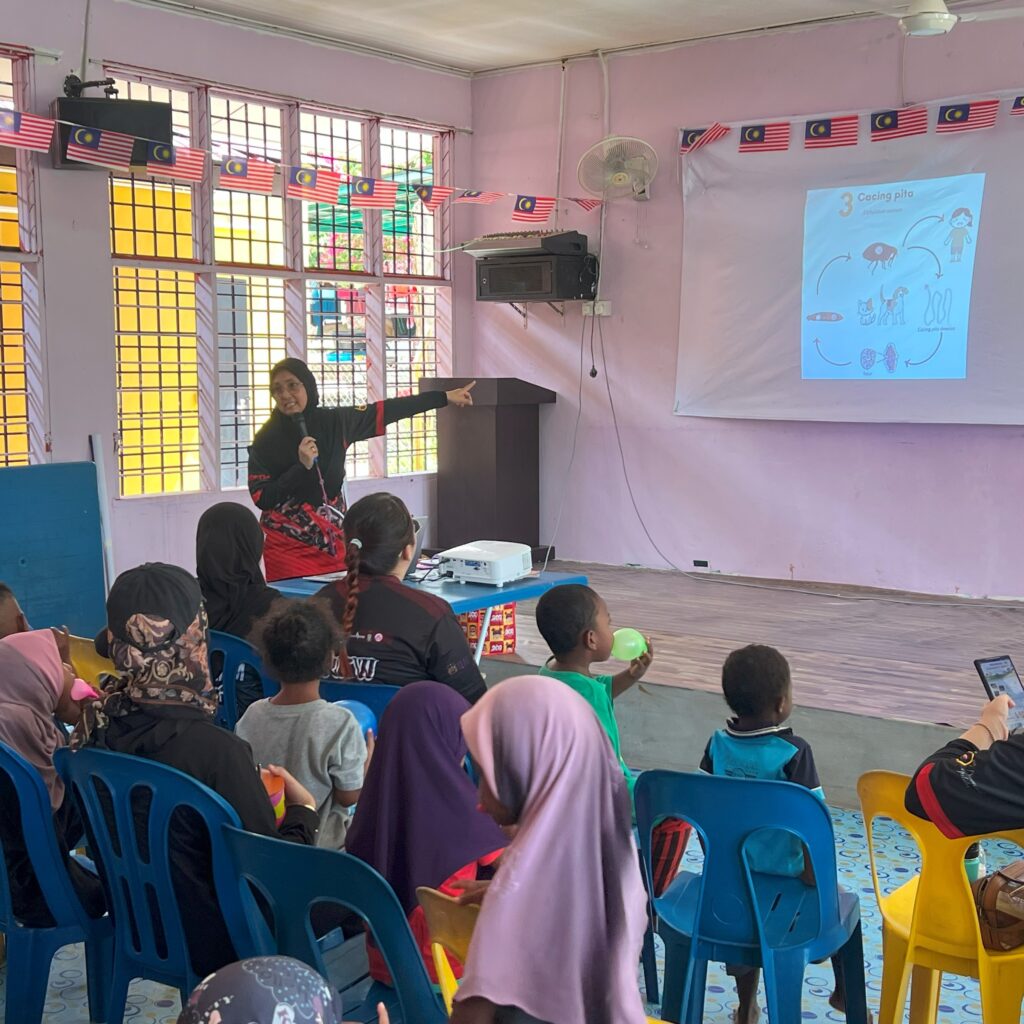 Dr Farah – Personal hygiene
Dr Farah – Personal hygiene
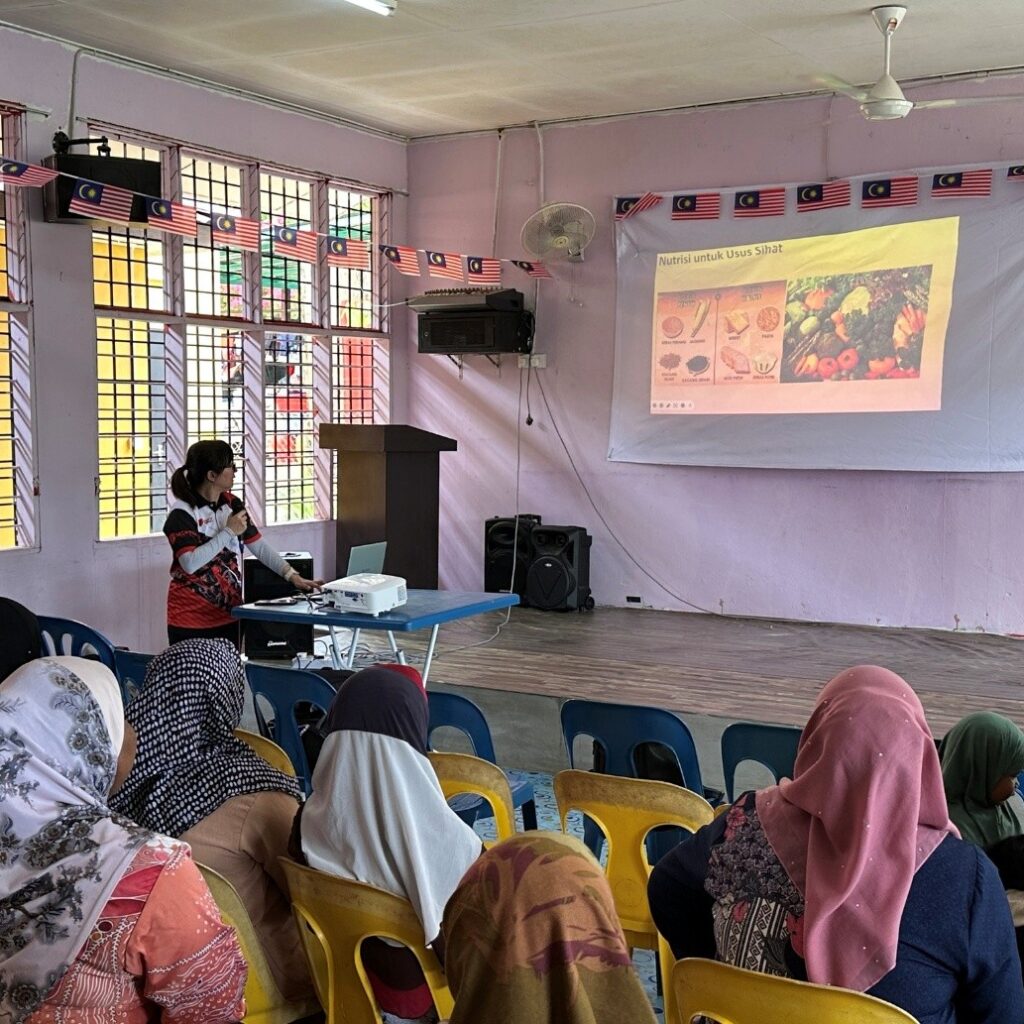 Dr Lee – Gut health and nutrition
Dr Lee – Gut health and nutrition
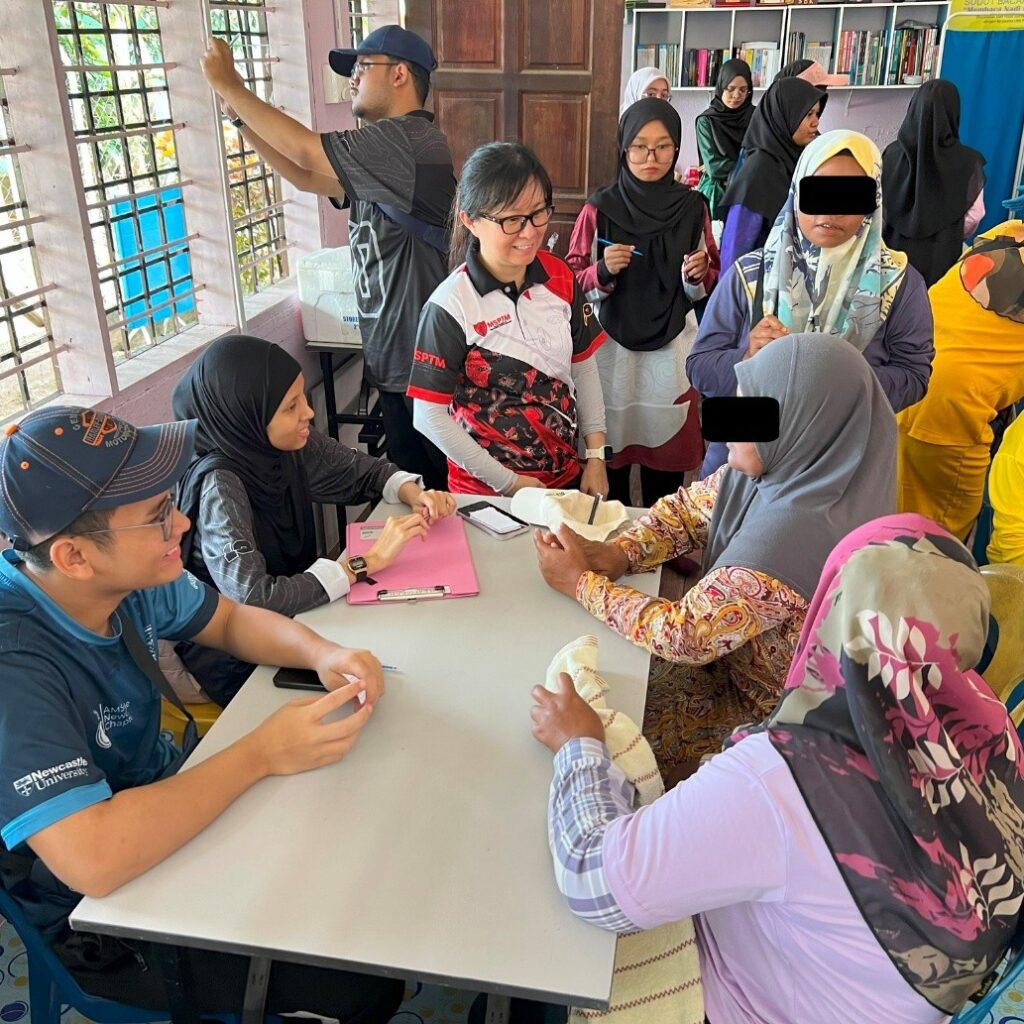 Free health check-up for the community
Free health check-up for the community
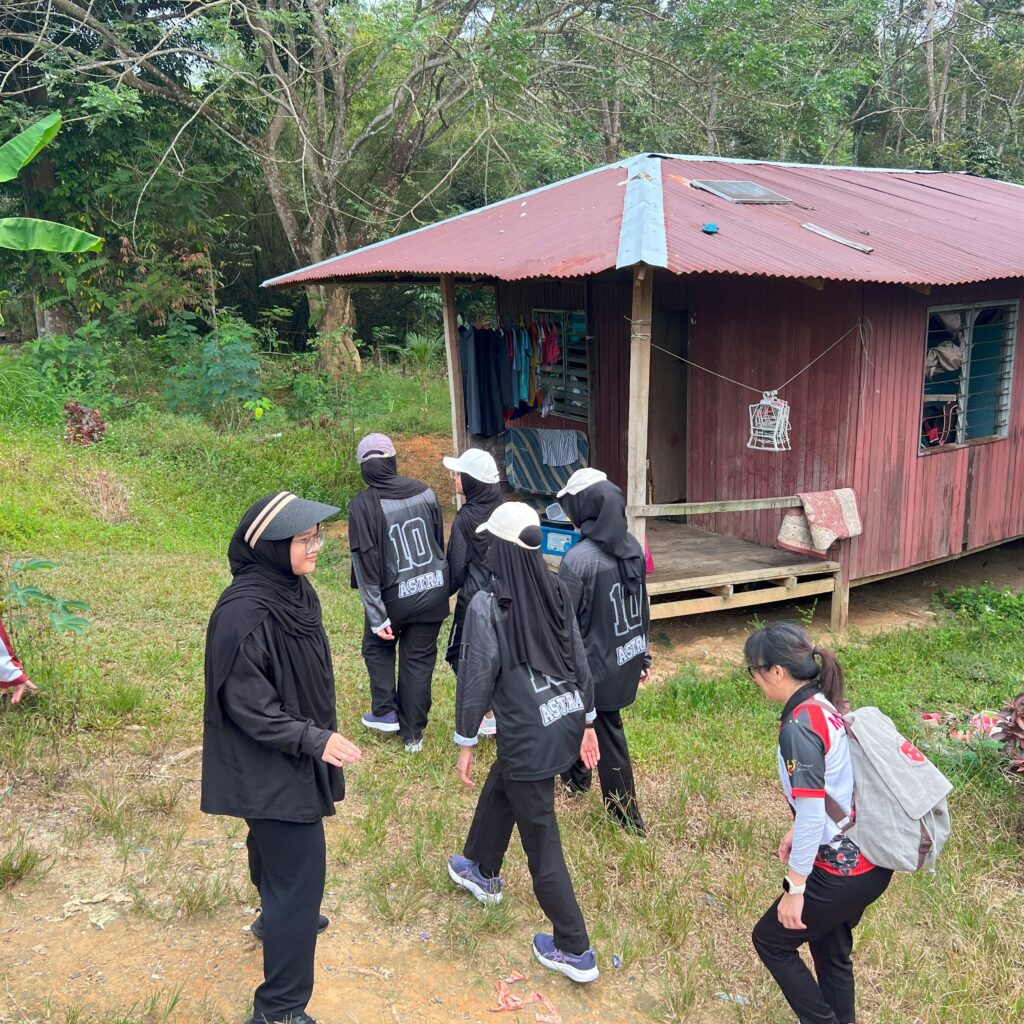 House-to-house visit
House-to-house visit
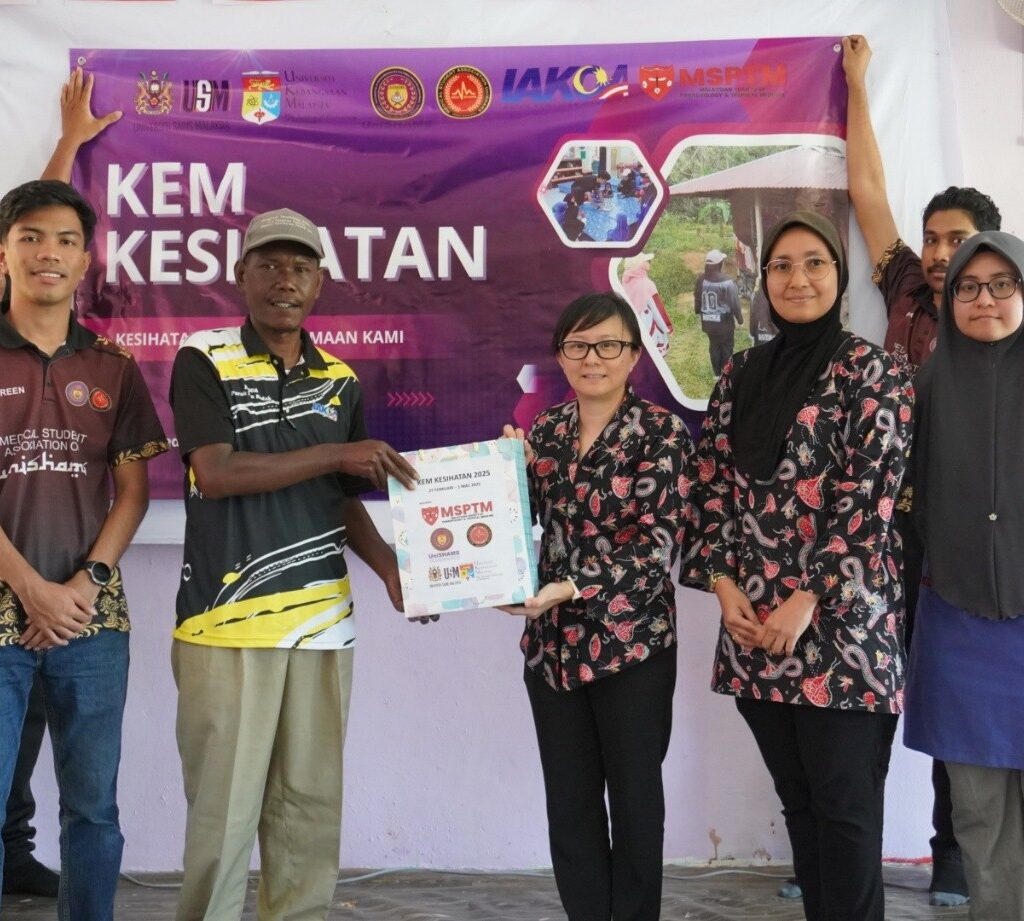 Closing ceremony
Closing ceremony
